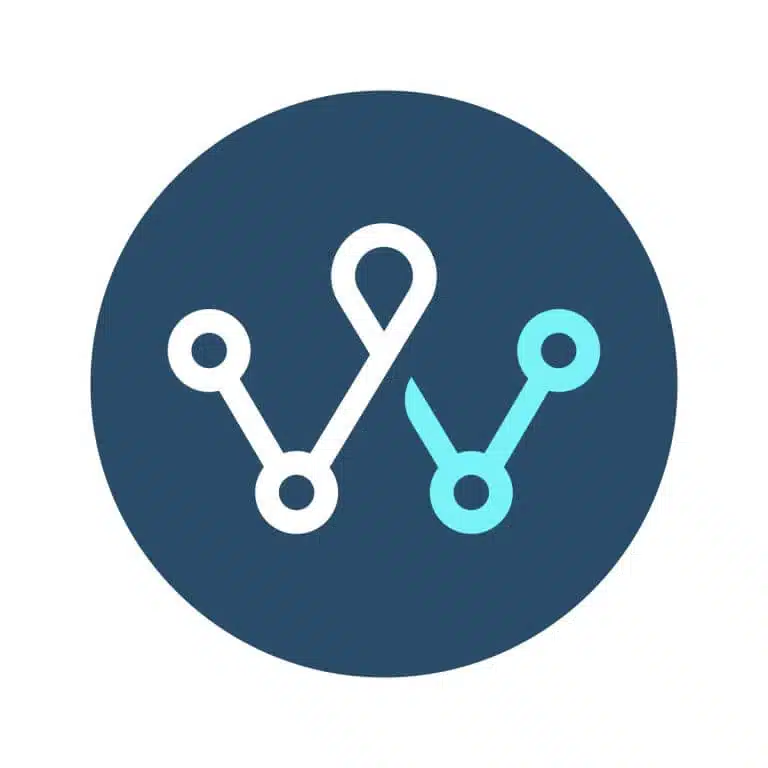In the ever-evolving landscape of Content Management Systems (CMS), selecting the right platform is crucial for organizations striving to deliver exceptional digital experiences. With options ranging from ubiquitous platforms like WordPress to specialized solutions like Contentful, the decision can be daunting. As platform selection experts, WayPath is offering a comprehensive comparison of Brightspot against other prominent CMS platforms such as WordPress, WordPress VIP, Contentful, and Adobe Experience Manager. While each platform offers unique features and functionalities, we’ll explore why Brightspot emerges as the superior choice for organizations seeking a powerful, scalable, and customizable CMS solution. Additionally, we’ll pose probing questions aimed at helping your organization understand its specific needs and how you can make an informed decision in the CMS platform selection process.
BRIGHTSPOT VS. WORDPRESS
WordPress is known for its extensive open-source network and widespread adoption. Its reputation is built on factors such as a user-friendly interface and the ability to quickly launch websites. It primarily caters to small businesses and consumers, offering specialized options like “Newspack” for smaller publishers and WordPress Engine for managed services. Key features include diverse hosting/cloud options suitable for various budgets and a wide selection of pre-built themes.
While WordPress excels in simpler page-oriented scenarios and benefits from a broad and diverse open-source developer community supporting over 70 languages, it often relies on third-party modules to incorporate key enterprise features. Notably, it lacks robust workflow capabilities, leaving room for improvement in this aspect.
In contrast, Brightspot presents a compelling alternative, particularly suited for high-volume or enterprise-grade publishing needs. Brightspot’s strengths lie in its ability to handle complex publishing demands efficiently. It outshines WordPress in terms of performance, offering a smoother and more flexible experience. Unlike WordPress, Brightspot also provides a headless CMS option, catering to modern content delivery requirements.
Another advantage of Brightspot is its implementation process, where its value is not solely dependent on the expertise of the partner involved. This independence from partner expertise ensures a more consistent experience across implementations, reducing the risk of variation in performance and functionality.
BRIGHTSPOT vs. WORDPRESS VIP
WordPress VIP, as the enterprise-grade offering of WordPress, is recognized for its widespread adoption, user-friendly interface, and rapid website setup capabilities. Leveraging support from an open-source community, it caters to organizations seeking reliability and scalability. Positioned against competitors like Adobe Experience Manager and Sitecore in the enterprise sector, and against Pantheon and WP Engine within the WordPress ecosystem, WordPress VIP prioritizes security by adhering to FedRAMP standards.
Key weaknesses of WordPress VIP include its outsourced model, where customers must rely on external development services or have in-house developers familiar with WordPress VIP. Additionally, its non-enterprise-grade simplicity may pose challenges when organizations seek to replace highly integrated systems like Adobe Experience Manager or Sitecore. Furthermore, while the infrastructure of WordPress VIP is secure, vulnerabilities in plugins require constant updates and maintenance, adding complexity to site management.
WordPress VIP has notable limitations that make Brightspot a compelling alternative. Brightspot excels in high-volume publishing scenarios where WordPress VIP may falter due to its perceived sluggishness, rigidity, and lack of flexibility. While WordPress VIP offers a traditional headless solution, its requirement-heavy approach can lead to roadblocks and hinder development efforts. Moreover, navigating the nuances of WordPress VIP’s open-source environment can overwhelm developers and potentially lead to reliability issues with custom work.
BRIGHTSPOT VS. CONTENTFUL
Known for its scalability, agility, and developer-friendly tools, Contentful does attract businesses seeking to efficiently build and deliver content-rich applications. However, analysts caution that Contentful’s API-first approach may make it more suitable for non-website and custom uses. While it caters to developer needs with certifications and developer-friendly features, Contentful lacks native content creation structures, customizable workflows, taxonomy and tagging capabilities, built-in personalization features, and basic Digital Asset Management (DAM) functionalities.
Key weaknesses of Contentful include the need for customers to build live preview functionality, which is known to be finicky, and the platform’s limited customization options per user role, job function, and backend needs. Additionally, Contentful’s headless-only approach can potentially limit flexibility, as customers are boxed into headless delivery for the duration of their contract. Critics also argue that Contentful is tone-deaf to the needs of marketers and content creators.
With Contentful’s limitations in mind, Brightspot stands out as an enticing option because of its adaptability and user-friendly approach. Brightspot’s hybrid architecture provides flexibility that Contentful cannot match, allowing organizations to tailor their CMS to their specific needs effectively. Moreover, Brightspot caters to the needs of both content creators and developers, offering an intuitive user interface and robust developer tools. An area where Brightspot particluary shines is in its native workflow capabilities, which are considered superior to Contentful’s out-of-the-box solutions. These advantages make Brightspot a strong contender for organizations seeking a powerful and user-friendly CMS solution.
BRIGHTSPOT VS. ADOBE EXPERIENCE MANAGER
Adobe Experience Manager (AEM) is often regarded as a top-tier solution for enterprise-level digital experience management. Developed by Adobe, it integrates content management, digital asset management, and marketing functionalities, enabling organizations to deliver personalized, omni-channel experiences on a large scale. AEM’s features, such as multi-site management and workflow automation, are tailored to meet the requirements of large-scale enterprises.
However, for organizations truly prioritizing user-friendly interfaces, streamlined workflows, and rapid adaptation to changing digital needs, Brightspot emerges as an appealing alternative to AEM. Brightspot offers a consistent user interface (UI) developed from a single code base across the platform, enhancing usability and reducing complexity, while AEM may present a disjointed user experience due to acquisitions and its intricate system, often necessitating advanced HTML skills and extensive training. Moreover, Brightspot’s flexible publishing approach adapts to various paradigms, supporting both headless and decoupled architectures, whereas AEM imposes a more rigid structure, requiring users to conform to its specific publishing paradigm. Additionally, Brightspot excels in publishing speed, enabling quick content deployment across channels, particularly beneficial for non-technical users, whereas AEM’s content publishing process often demands significant effort and technical expertise, especially for emerging channels.
Furthermore, Brightspot’s intuitive workflow management allows non-IT administrators to easily create and update workflows through drag-and-drop functionality, contrasting with AEM’s workflow design primarily tailored for IT teams, presenting challenges for non-technical users. Brightspot’s powerful search capabilities, including flat, federated, semantic search, provide enhanced discoverability compared to AEM’s reliance on a traditional folder structure, which can be cumbersome. Integrations are also a strength for Brightspot, with an API-first approach offering over 50 out-of-the-box integrations. Additionally, Brightspot’s native support for headless and decoupled CMS, along with live content previews, contrasts with AEM’s more complex headless support and lack of live preview functionality. Finally, Brightspot boasts a shorter implementation timeline of 60 days or less and averages less than half the cost of AEM, offering options to manage instances and reduce maintenance costs, positioning it as a more accessible and cost-effective solution.
TRANSITIONING YOUR CMS
Companies who have made the switch from WordPress and WordPress VIP to Brightspot include DispatchHealth, FedEx, Marriott, and Golfzon. And whether it’s a transition from WordPress, Contentful, or AEM to Brightspot, it’s crucial to consider a range of key factors to guarantee a seamless migration and maximize the benefits of the new platform. WayPath’s CMS consultants specialize in guiding organizations through CMS migrations, offering expertise and support to ensure successful implementation and navigation of the transition. Here are questions designed to guide your decision-making process and help navigate your journey towards effective utilization of Brightspot. WayPath will assist your organization in answering these questions effectively, leveraging our experience and knowledge in CMS migrations.
What are your overarching content goals?
- Conduct thorough internal analyses and assessments of your current content approach.
- Understand your organization’s needs and identify areas for improvement.
- Envision future objectives.
- Define clear, measurable goals aligned with your brand’s mission and objectives.
- Ensure the goals are specific, achievable, and relevant to your content strategy.
What CMS services and capabilities do you need to achieve these goals?
- Document desired functionalities and features.
- Include structured workflows, customization options, scalability.
- Prioritize requirements based on impact on content goals.
- Collaborate with stakeholders for input and prioritization.
- Align selection criteria with specific goals and objectives.
What integrations do you need?
- Prioritize seamless connectivity with all the necessary digital tools and platforms.
- Identify key integration points such as CRM systems, e-commerce platforms, social media channels.
- Consider relevance to content strategy and business objectives.
- Select a CMS with robust integration capabilities for a unified digital ecosystem.
- Enable personalized experiences and improve operational efficiency.
Who do you need to make this happen?
- Assess internal capabilities and identify gaps in skills or knowledge.
- Evaluate whether maintenance will be handled internally, outsourced, or by non-technical users.
- Involve relevant stakeholders in the decision-making process.
- Ensure your organization has the necessary expertise to support ongoing operations.
- Maximize the value of your CMS investment and optimize performance over time.
What will it cost?
- Estimate costs associated with implementing, maintaining, and operating your new CMS platform.
- Consider factors such as licensing fees, hosting expenses, ongoing support, security needs, and training costs.
- Evaluate total cost of ownership over the platform’s lifecycle.
- Factor in potential fluctuations in costs, such as upgrades or additional integrations.
- Allocate resources accordingly to ensure your CMS investment stays within budget.
THE BRIGHTSPOT ADVANTAGE:
A multitude of aspects position Brightspot as a leading choice for organizations seeking a powerful and user-friendly CMS solution. Brightspot stands out in the CMS landscape with key strengths that empower organizations to excel in content management:
- Speed to create: Brightspot enables users of all technical backgrounds to generate content swiftly, eliminating the need for extensive development support and fostering agility in content creation processes.
- Hybrid architecture: With Brightspot, users have the freedom to choose their preferred delivery strategy for each project, ensuring flexibility and adaptability without being locked into a single architecture type.
- In-house expertise: Brightspot offers unparalleled support from in-house experts and partner resources, guiding customers seamlessly through migration and ongoing strategy development with reliability and expertise.
- Migration superiority: Unlike outsourced models, Brightspot provides a superior migration experience with its in-house team of experts, ensuring a smooth transition without relying on potentially unreliable third-party partners.
- Ready-to-use functionality: Brightspot comes equipped with core features ready for immediate use, eliminating the need for plugins and enabling customers to start creating content with essential functionality from day one.
- Personalized workflows: Brightspot’s workflows consist of extensive customization options, allowing organizations to tailor workflows to their specific needs with ease.
TURNING YOUR BRIGHTSPOT VISION INTO REALITY WITH WAYPATH
When considering the ideal CMS platform for your organization, Brightspot emerges as a standout choice, offering exemplary flexibility, user-friendliness, and scalability. Unlike Contentful’s headless-only solution, Brightspot provides the ultimate flexibility, allowing users to tailor their delivery strategy project-by-project without being locked into a specific technical setup. With Brightspot, you can create content at scale, leveraging a hybrid approach that combines the best of headless and traditional CMS functionalities. Additionally, Brightspot’s user-friendly back end caters to both technical and non-technical users, enabling seamless customization to meet exact needs, with or without code. Unlike WordPress, Brightspot is purpose-built to streamline content creation processes, resolving common challenges faced by users of simplistic platforms.
In partnering with WayPath, organizations in all industries can navigate the platform selection and implementation process with confidence, leveraging their expertise to maximize the potential of Brightspot’s powerful features. By providing guidance and support, WayPath ensures that your teams are empowered to enhance productivity, efficiency, and overall satisfaction.
Ready to set out on the transformative journey of choosing the perfect CMS for your organization? Reach out to WayPath today to kickstart the process.




